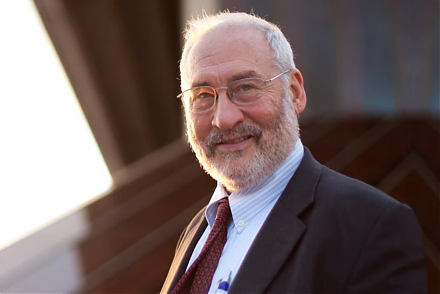

2023-02-28 10:27:00 Tue ET
treasury deficit debt employment inflation interest rate macrofinance fiscal stimulus economic growth fiscal budget public finance treasury bond treasury yield sovereign debt sovereign wealth fund tax cuts government expenditures

Philippe Van Parijs and Yannick Vanderborght (2017)
Basic income: a radical proposal for a free society and a sane economy
In a recent radical proposal, Philippe Van Parijs and Yannick Vanderborght provide a comprehensive review of all of the arguments for and against the implementation of an unconditional universal basic income policy. In order to clarify the immediate impact of basic income, Van Parijs and Vanderborght frame this radical proposal in the greater context of the social welfare transfer system as a whole. In particular, all basic income discussions must consider the socially optimal income distribution and the most efficient way for the current transfer system to attain this distribution. Moreover, basic income proponents emphasize the importance of the non-take-up phenomenon in most current transfer systems. Van Parijs and Vanderborght delve into the economic necessity of a basic income policy in the new age of both smart automation and artificial intelligence. Basic income reforms can contribute to better health care, public infrastructure, education, technology, and residential protection in both rich and poor countries worldwide.
We can define the notion of unconditional basic income as regular income that the government pays in cash to each citizen or permanent resident of a modern society regardless of his or her other income, wealth, ethnic identity, social status, or other demographic characteristics. Universal basic income flows to individual citizens or permanent residents rather than households. Also, the government pays this basic income in cash but not in kind. This basic income scheme should be unconditional instead of involving some kind of means test. Basic income beneficiaries should carry no obligation to perform community work available on the labor market. From a fundamental perspective, we can carefully justify the importance of each of these characteristics in order to reach the normative standard of real economic freedom for all. Unconditionality avoids converting basic income beneficiaries into economic welfare claimants subject to intrusive procedures. Moreover, universality allows a high rate of take-up that the government can achieve at a low information cost with neither poverty trap nor unemployment spiral. Permanent freedom from obligation helps address the employment dilemma by increasing the bargaining power of the lower social echelon of the general public. All of these considerations help improve the economic lives of citizens or even permanent residents in a modern society. In this positive light, the recent radical basic income policy proposal can contribute to the financial freedom and inclusion of numerous people in our global society. Basic income reforms can improve health care, infrastructure, education, technology, or residential protection in both rich and poor countries.
We can consider theoretical comparisons between unconditional basic income and its main alternatives. The alternative schemes include universal basic endowment in cash at the start of adult life, negative income taxation, basic income tax credit, wage subsidization, lifelong employment, and shorter work time etc. In accordance with the main thesis of Van Parijs and Vanderborght, genuine basic income serves as the best policy instrument for the government to attain a free society and a sane economy worldwide.
We can consider the ethical considerations for unconditional basic income. In fact, the strongest objection to this radical basic income proposal relates to not requiring the beneficiaries to work. In this sense, unconditional obligation-free basic income contradicts the pervasive notion of fairness. This ubiquitous notion of fairness often suggests that most citizens should live off of their own labor (rather than free-riding on the labor of others). However, we can refute this objection with several counter-arguments. In particular, unconditional basic is quite essential to the conception of distributive justice as real freedom for all. This core concept generates a valid and persuasive rationale in favor of basic cash income that the government pays at the highest sustainable level to all citizens or permanent residents with no means test. This basic income helps ensure that most people exercise their unalienable rights of freedom to life, liberty, and the pursuit of happiness.
When we analyze the unconditional basic income experiments in Alaska, Belgium, and Switzerland, several econometric studies predict both declines in labor market participation and average work time as a result of the introduction of unconditional basic income. At any rate, we often learn to be cautious about whether it is rational for most economists to extrapolate these quantitative results to both rich and poor countries. In terms of funding the radical basic income policy, the government can consider taxes on labor income, wealth, capital, consumption, and money creation. In the meantime, key economists, experts, pundits, politicians, and influencers etc often learn to weigh the political feasibility of an unconditional basic income policy (in addition to the financial sustainability of such a radical reform). In practice, the key root causes of both public support and opposition with respect to basic income often reflect median voter tendencies, investor sentiments, and consumer rights in light of many other bipartisan issues around selective immigration and employment in the modern age of both smart automation and artificial intelligence.
In Switzerland, the basic income proposal calls for adults to receive unconditional income of 2,500 Swiss francs per month. The government pays this basic income regardless of both work commitments and preferences. In Switzerland, each child further receives 625 Swiss francs. The unconditional income arrangements reflect the high cost of living in Switzerland as of the millennial decades of 2000 to 2020. We should view this radical basic income experiment as part of the transfer system with some pervasive non-take-up.
Basic income reforms typically focus on the potential ripple effects on labor market participation and average work time, whether and how it is possible for the state to finance the basic income distribution, and how likely it is for the government to help reduce poverty in light of smart automation and artificial intelligence. Even though basic income serves as a logical benefit instrument, its potential effects on human behaviors and macroeconomic trends ultimately depend on the greater net income distribution as a result of basic income introduction. In this positive light, numerous experts and influencers tend to view a basic income proposal as part of the broader social welfare transfer system. The myriad social implications of basic income can fundamentally change the wider transfer system. In practice, different basic income proponents focus on different instrumental adjustments of the transfer system. In particular, these proponents often tend to hold different views of how several other taxes and benefits shall change with respect to the universal basic income reform. For this reason, most economists emphasize the importance of socially desirable income distribution that the transfer system can achieve in an efficient manner.
Basic income proponents highlight both the necessity and desirability of increasing the benefits for specific groups of people. Their basic income discussions seem to focus on how these benefits effectively help improve specific economic aspects of life (such as health care, education, technology, and residential protection etc). At the same time, most basic income proponents delve into the econometric evidence on the likely prevalence of the non-take-up problem in the current transfer system. A significant advantage of basic income over many other policy instruments is that basic income allows for addressing the non-take-up problem in most social welfare systems today. The devil is in the details. The entire calibration of net transfers can be left to the tax side of the social welfare system. One of the main advantages of basic income is its simplicity that helps improve both the efficacy and efficiency of the extant transfer system.
A common argument that most basic income proponents favor concerns the social necessity of providing income to those people whose jobs would be taken by smart machines. Artificial intelligence and automation can take over many labor-intensive jobs. For this reason, the government needs to consider increasing the fraction of universal basic income recipients in the next decades as a result of technological progress and automation. During the intermediate transition of wage subsidization, the government has to transform higher education in order to adapt human capital accumulation to the new data economy. As maximum sustainable employment has been shown to affect happiness and economic prosperity, helping people through this transition may be the pivotal path for them to achieve greater fulfillment. In this fundamental sense, basic income helps enrich the economic lives of most people in both rich and poor countries worldwide.
In modern societies, both citizens and permanent residents are subject to various taxes and benefits. In combination, these taxes and benefits jointly constitute what most economists regard as the social welfare transfer system. In a social transfer system, some people turn out to be net contributors, whereas, others often tend to be net beneficiaries. The incumbent government can introduce some new benefits to increase the income of a particular subgroup of the population. Changes in both taxes and benefits further alter the incentives for several specific subgroups of the population. These fiscal changes often affect the whole net income distribution and the efficacy and efficiency of a basic income policy. These incentives arise not only from the new policy instrument (basic income in this case), but also from its broader interactions with other extant taxes and benefits. Therefore, key incentives depend on the potential impact that the new basic income reform has on the resultant social transfer system as a whole.
A basic income policy can combine with a tax system to benefit most people not in need. Many economists view this combination as equivalent to wage subsidization that targets a specific subset of net contributors in the population. The introduction of basic income per se cannot cause clear unambiguous ripple effects on the final income distribution. For this reason, the social desirability of a basic income policy often depends on the economic aspects of the resultant transfer system as a whole (i.e. net taxes and net benefits for specific subgroups of people).
Under each basic income reform, the ultimate incentives often depend on how the resultant social transfer system changes the net payoff for different human actions and choices. A major concern about basic income policy implementation is its likely negative impact on individual labor force participation and average work time. This pervasive concern can often reflect median voter preferences for work and leisure. Most people consider the work and leisure incentives in light of permanent income or lifetime income from one generation to the next. In the broader economic context, these work and leisure incentives often depend on how each basic income reform interacts with the extant social welfare transfer system.
For instance, a universal basic income policy of $2,500 can be quite generous in both rich and poor countries. In the particular case of a poor country, basic income beneficiaries continue to work hard with the same aggregate labor supply to earn market equilibrium wages because these beneficiaries still need to work in light of their permanent income or wealth over the current lifetime. In the specific case of a rich country, however, basic income beneficiaries may voluntarily choose to work less. Alternatively, these basic income recipients may even radically choose not to participate in the labor force altogether. Therefore, the same basic income reform can result in opposite labor market results in both rich and poor countries. Several economists advocate in favor of basic income in the fundamental sense that basic income helps improve many social aspects of life such as health care, education, technology, infrastructure, and residential protection etc. The equivalent tax credit or wage subsidization would cause unnecessary distortions in the labor market. In this positive light, basic income can be a radical solution to many economic issues in most modern societies.
Whether basic income can help reduce the overall costs of a social transfer system often depends on whether the current transfer system adjusts much to account for the positive effects of basic income on individual lifetime wealth. Any social transfer system involves costs borne by both the government, the fiscal authority, and the taxpayers. These costs include administrative costs and psychological biases such as social stigma that most social welfare claimants would face under the standard means tests. In accordance with what Nobel Laureate Milton Friedman had in mind, the ideal basic income policy should involve no means tests for cost minimization. A universal basic income scheme would be more efficient than the bureaucracy of running dozens of separate social welfare programs to help the poor. In essence, basic income can coexist with the new social transfer system for better economic standards of living in the modern capitalist society.
We can consider the ethical considerations for unconditional basic income. In fact, the strongest objection to this radical basic income proposal relates to not requiring the beneficiaries to work. In stark contrast to this objection, however, many people perform economic activities that arguably deserve to equate some form of service. These economic activities include housework, community involvement, and maybe interpersonal engagement in non-profit organizations etc. A substantial amount of essential productive work cannot match the labor market equilibrium wage. In this case, an obligation-free basic income arrangement can serve as the least bad way of reaching the individual citizens or permanent residents who cannot receive any form of compensation for their voluntary services.
When we consider the broader reciprocity-driven viewpoint on distributive justice, the basic income beneficiaries must include not only the current welfare claimants (such as the unfortunate people with physical handicaps and disabilities), but also many people who happen not to be in the labor force (such as housewives as well as church deacons etc). Although basic income implementation may inadvertently affect labor supply, human capital, and fertility decisions, these individual decisions cannot only depend on the existence of basic income per se, but also on how basic income alters the current transfer system. If basic income adds to the extant social welfare claims and benefits, one expects the net income distribution to shift in favor of the poor. The likely positive result alters the distribution of net taxes and benefits in accordance with the grand notion of distributive justice. Once again, the devil is in the details. Basic income can serve as a radical and reasonable solution to many economic problems in most modern societies.
Most experts and economists cannot draw general conclusions from basic income experiments such as the Alaska Permanent Fund, Win for Life in Belgium, and the basic income scheme in Switzerland. In fact, most experts and economists prefer to compare the new transfer system with basic income to the respective status quo. These comparisons often reflect a common lack of generic econometric inferences due to finite time periods and data samples. For example, the Alaska Permanent Fund shows no impact on total employment, but this basic income scheme seems to have increased part-time work by 17%. In Belgium, the Win for Life basic income winners receive lifelong payments of $900 to $2,000 per month. This basic income helps boost household consumption and small business growth in Belgium. Many experts observe the same economic trend in Switzerland. However, it can be quite difficult for most economists to extrapolate these finite data features to the broader modern capitalist societies in both rich and poor countries worldwide.
Whether basic income reforms can turn out to be politically feasible often depends on how basic income affects different segments of the population in a positive way. If the positive ripple effects are quite smooth and widespread across the board, it is more likely for most basic income proponents and politicians to secure a majority of the population well in favor of basic income reforms. When the proponents and politicians present basic income as an addition to the extant transfer system, both the number and identity of the voters for and against this radical reform would differ much from the alternative case where the proponents and politicians present basic income as a substitute to all other claims and benefits of the extant transfer system. As of the decade from 2010 to 2020, the representative surveys show that 60% to 90% of the population would support basic income in specific parts of Europe such France, Germany, and Switzerland etc. In stark contrast, about 83% of Americans and Canadians oppose the basic income idea of extending the Alaska Permanent Fund to the region. These survey results may reflect different cultural perceptions of basic income (as an addition or as a substitute to the respective status quo).
Non-take-up of social benefits is the usual phenomenon where individual citizens or permanent residents voluntarily forgo their entitlements for whatever reason. An eligible person does not file a claim because he or she lacks knowledge about the existence of social benefits. Alternatively, an eligible person does not file a claim due to various costs such as lack of interest, high travel time, or social stigma. An eligible person may have claimed some social benefit but still cannot receive it due to rejection or withdrawal by the government because of some means tests.
One major advantage of basic income relates to the low take-up rate under current transfer systems. It is rather likely that non-take-up concerns the most vulnerable segments of the population. Fraud and non-take-up both limit the effectiveness of social policies by generating unequal treatment of citizens or permanent residents. The common and widespread design of social transfer policies persists such that it is often the responsibility of the potential beneficiaries to find the key information about their rights and entitlements. In this case, the government is often passive, and the potential beneficiaries must be active. From this fundamental viewpoint, a basic income policy helps avoid fraud and non-take-up altogether. The relevance and magnitude of pervasive non-take-up can constitute a strong justification for the implementation of universal basic income policies in most modern economies. Its simplicity contrasts with the overwhelming complexity of most transfer systems. In practice, basic income policies often help reduce significant costs in terms of both efficiency and fairness. On balance, basic income can well constitute part of what would serve as an optimal social transfer system.
Today technological advances such as smart automation and artificial intelligence threaten part of the jobs that the current labor force performs in modern economies. As smart machines match or even outpace human performance in a wide range of jobs, artificial intelligence and automation can lead to profound structural changes in the global economy and workforce. A recent McKinsey survey shows that smart automation can perform more than half of labor-intensive jobs in the U.S. industries of retail trade, health care, food service, transport, travel, and tourism etc. Another PwC survey suggests that more than 35% of European jobs can be at high risk of automation by the early-2030s. In this context, basic income can help ensure that most global citizens benefit from a financial safety net. In the form of cash income, this safety net empowers global citizens to maintain a decent standard of living in most modern economies. The government has to design basic income reforms to help facilitate the gradual transition toward better lifelong education, employment, and continuous adaptation in light of greater job polarization and automation in the future (i.e. focus, self-control, team play, and perseverance etc in the Program for International Student Assessment (PISA)).
This analytic essay cannot constitute any form of financial advice, analyst opinion, recommendation, or endorsement. We refrain from engaging in financial advisory services, and we seek to offer our analytic insights into the latest economic trends, stock market topics, investment memes, personal finance tools, and other self-help inspirations. Our proprietary alpha investment algorithmic system helps enrich our AYA fintech network platform as a new social community for stock market investors: https://ayafintech.network.
We share and circulate these informative posts and essays with hyperlinks through our blogs, podcasts, emails, social media channels, and patent specifications. Our goal is to help promote better financial literacy, inclusion, and freedom of the global general public. While we make a conscious effort to optimize our global reach, this optimization retains our current focus on the American stock market.
This free ebook, AYA Analytica, shares new economic insights, investment memes, and stock portfolio strategies through both blog posts and patent specifications on our AYA fintech network platform. AYA fintech network platform is every investor's social toolkit for profitable investment management. We can help empower stock market investors through technology, education, and social integration.
We hope you enjoy the substantive content of this essay! AYA!
Andy Yeh
Chief Financial Architect (CFA) and Financial Risk Manager (FRM)
Brass Ring International Density Enterprise (BRIDE) ©
Do you find it difficult to beat the long-term average 11% stock market return?
It took us 20+ years to design a new profitable algorithmic asset investment model and its attendant proprietary software technology with fintech patent protection in 2+ years. AYA fintech network platform serves as everyone's first aid for his or her personal stock investment portfolio. Our proprietary software technology allows each investor to leverage fintech intelligence and information without exorbitant time commitment. Our dynamic conditional alpha analysis boosts the typical win rate from 70% to 90%+.
Our new alpha model empowers members to be a wiser stock market investor with profitable alpha signals! The proprietary quantitative analysis applies the collective wisdom of Warren Buffett, George Soros, Carl Icahn, Mark Cuban, Tony Robbins, and Nobel Laureates in finance such as Robert Engle, Eugene Fama, Lars Hansen, Robert Lucas, Robert Merton, Edward Prescott, Thomas Sargent, William Sharpe, Robert Shiller, and Christopher Sims.
Follow AYA Analytica financial health memo (FHM) podcast channel on YouTube: https://www.youtube.com/channel/UCvntmnacYyCmVyQ-c_qjyyQ
Follow our Brass Ring Facebook to learn more about the latest financial news and fantastic stock investment ideas: http://www.facebook.com/brassring2013.
Free signup for stock signals: https://ayafintech.network
Mission on profitable signals: https://ayafintech.network/mission.php
Model technical descriptions: https://ayafintech.network/model.php
Blog on stock alpha signals: https://ayafintech.network/blog.php
Freemium base pricing plans: https://ayafintech.network/freemium.php
Signup for periodic updates: https://ayafintech.network/signup.php
Login for freemium benefits: https://ayafintech.network/login.php
If any of our AYA Analytica financial health memos (FHM), blog posts, ebooks, newsletters, and notifications etc, or any other form of online content curation, involves potential copyright concerns, please feel free to contact us at service@ayafintech.network so that we can remove relevant content in response to any such request within a reasonable time frame.
2023-09-07 11:30:00 Thursday ET

Michael Woodford provides the theoretical foundations of monetary policy rules in ever more efficient financial markets. Michael Woodford (2003)
2018-03-19 10:37:00 Monday ET

Uber's autonomous car causes the first known pedestrian fatality from a driverless vehicle and thus sets off the alarm bell for artificial intelligence.
2019-04-26 09:33:00 Friday ET

JPMorgan Chase CEO Jamie Dimon defends capitalism in his recent annual letter to shareholders. As Dimon explains here, socialism inevitably produces stagnat
2023-05-31 03:15:40 Wednesday ET

The U.S. further derisks and decouples from China. Why does the U.S. seek to further economically decouple from China? In recent times, th
2019-08-06 07:28:00 Tuesday ET

Former basketball star Shaq O'Neal has almost quadrupled his net worth once he learns and applies an ingenious investment strategy from Amazon Founder J
2023-08-21 12:25:00 Monday ET

Steven Shavell presents his economic analysis of law in terms of the economic outcomes of both legal doctrines and institutions. Steven Shavell (2004)